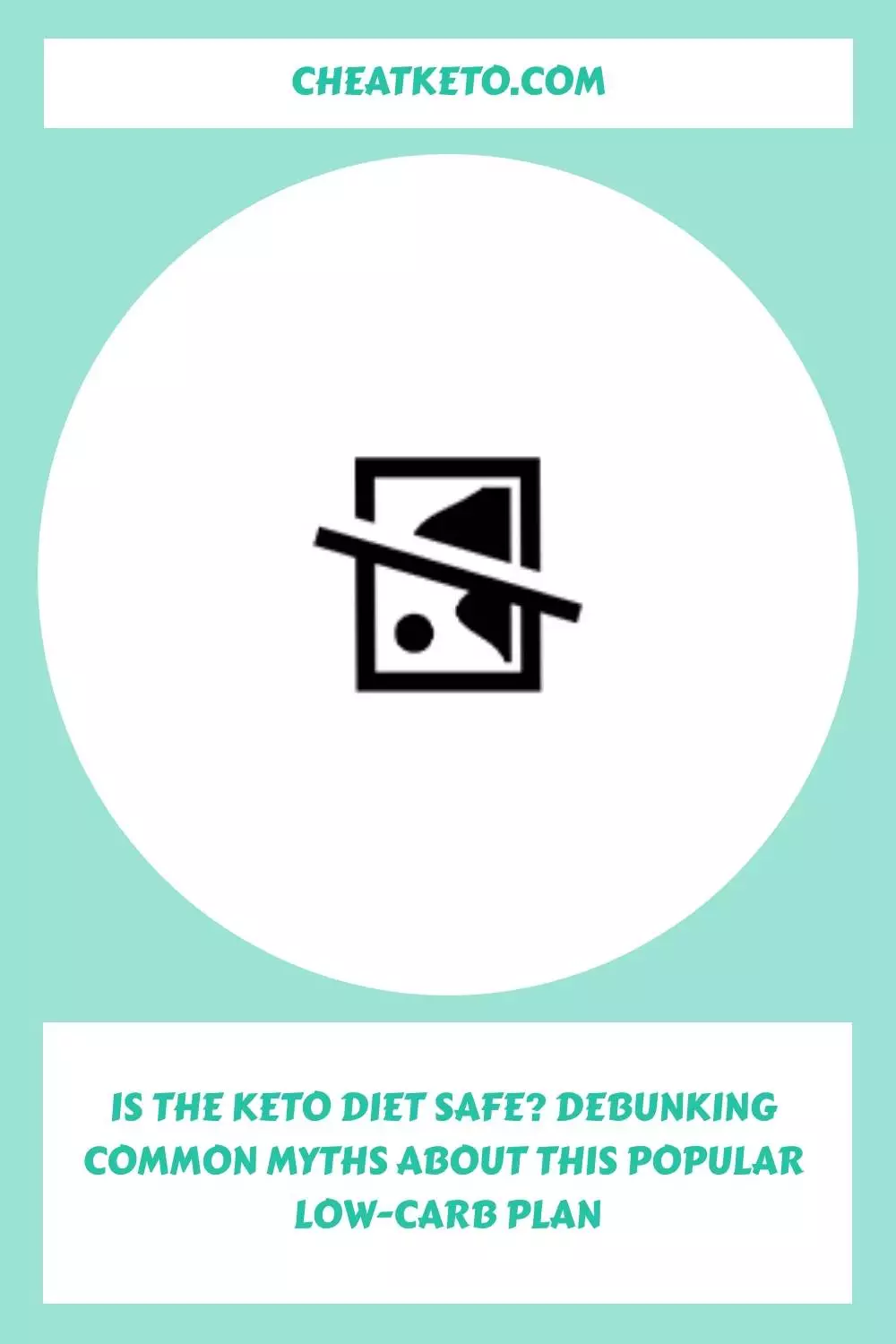Is the Keto Diet Safe? Debunking Common Myths About this Popular Low-Carb Plan
The ketogenic diet, or simply “keto” for short, is a low-carbohydrate and high-fat diet that has gained popularity in recent years. This diet involves reducing carbohydrate intake to less than 50 grams per day while increasing fat consumption to around 70% of total calories consumed. The goal of this diet is to put your body into a state of ketosis, where it burns stored fats instead of glucose from carbs as its primary source of energy. While there are many benefits associated with the keto diet, some people may have concerns about its safety. In this article, we will debunk common myths about the keto diet and provide you with everything you need to know about following a safe and effective plan.
Introduction to the Keto Diet
The keto diet was originally developed as a treatment option for children with epilepsy who did not respond well to medication. However, over time, it has become a popular weight loss strategy due to its ability to help individuals shed pounds quickly and efficiently. Despite its growing popularity, there are still many misconceptions surrounding the safety of the keto diet. Let’s take a closer look at what the research says.
What is the Safety of the Keto Diet
One of the most common concerns surrounding the keto diet is whether it is safe to consume so much saturated fat. Saturated fat has been linked to an increased risk of heart disease in previous studies; however, newer research suggests that this may not be the case. A systematic review published in the British Journal of Nutrition found no significant association between saturated fat intake and cardiovascular disease. Additionally, several studies have shown that the keto diet can actually improve cholesterol levels by decreasing triglycerides and increasing HDL (good) cholesterol.
Another concern is whether the keto diet is adequate in providing essential nutrients. While it is true that the keto diet restricts certain food groups, such as grains and fruit, it is possible to meet all necessary nutrient requirements through careful planning and supplementation if needed. For example, calcium and vitamin D are important nutrients that may be lacking on the keto diet, but these can easily be obtained through supplements or fortified foods.
Common Myths About the Keto Diet Debunked
There are several myths surrounding the keto diet that should be addressed:
1. Myth: The keto diet causes muscle loss – While it is true that the keto diet can cause a slight decrease in lean mass during the initial stages of adaptation, this effect is temporary and can be mitigated by incorporating resistance training into your routine.
2. Myth: The keto diet leads to bone loss – As mentioned earlier, the keto diet can potentially lead to a decrease in calcium intake. However, this does not necessarily translate to bone loss as long as calcium intake remains within normal ranges.
3. Myth: The keto diet is unsustainable – Many people believe that the keto diet is too difficult to maintain long-term because it requires drastic changes to one’s eating habits. However, numerous success stories show that the keto diet can be maintained for months or even years when approached correctly.
Benefits of the Keto Diet for Weight Loss and Health
In addition to helping individuals lose weight rapidly, the keto diet has also been linked to several health benefits including improved blood sugar control, reduced inflammation, and better cognitive function. Studies have shown that the keto diet can be particularly beneficial for those with type 2 diabetes, as it can lower HbA1c levels and reduce insulin resistance. Additionally, the keto diet has been used therapeutically to treat conditions such as seizures, cancer, and Alzheimer’s disease.
How to Follow a Safe and Effective Keto Diet Plan
To follow a safe and effective keto diet plan, consider the following tips:
1. Gradually transition into the diet – Starting with a more moderate approach and gradually reducing carbohydrate intake can make the process easier and prevent side effects like headaches and fatigue.
2. Eat plenty of whole foods – Focus on consuming whole, unprocessed foods rich in healthy fats and protein such as meat, fish, eggs, nuts, and avocado.
3. Stay hydrated – Drinking enough water is crucial when following the keto diet since dehydration can cause symptoms similar to keto flu.
4. Monitor electrolytes – Consuming sufficient amounts of sodium, potassium, magnesium, and other electrolytes is important to avoid complications such as muscle cramps and dizziness.
Conclusion: Is the Keto Diet Right For You
Whether the keto diet is right for you depends on your individual needs and goals. If you are looking to lose weight rapidly and improve overall health markers, then the keto diet may be worth considering. However, it is always best to consult with a medical professional before making any major dietary changes, especially if you have underlying health conditions.

